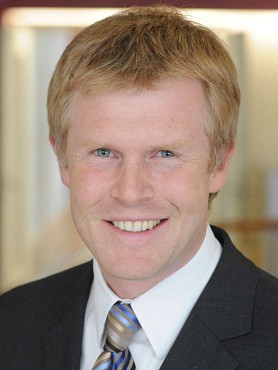Intervenant
Henrik ENDERLEIN
DIrector - Jacques Delors Institut - Berlin

His research is on economic policy-making, European monetary integration, fiscal federalism, financial markets and financial crises.
Since 2013 Henrik Enderlein is member of the Independent Board to the German Fiscal Council (“Stabilitätsrat”) and since 2011 General coordinator of the Padoa-Schioppa group on the reform of the EMU governance, established by the Think Tank Notre Europe under the patronage of Jacques Delors and Helmut Schmidt. The group published its report “Completing the Euro” in the summer of 2012. The Report has been translated into German and French.
Twitter Account: #delorsinstitut.de
Publications (5 max.):
- Enderlein Henrik, Ole Funke and Johannes Lindner: „The EU budget: which fiscal capacity at the European level?“ in: European Union: Power and policy-making, 4th edition, Richardson, Jeremy and Sonia Mazey (eds.), Routledge, 2015
- Enderlein, Henrik and Camillo von Müller: „German Fiscal Federalism at a Crossroads: Between Crisis and Reform“, in: The Global Debt Crisis. Haunting U.S. and European Federalism. Peterson, Paul E., Daniel Nadler (eds.): Brooking Institution Press, 2013
- Schumacher, Julian, Christoph Trebesch, and Henrik Enderlein: “Sovereign Defaults in Court: The Rise of Creditor Litigation, 1976-2010. Available at SSRN: http://dx.doi.org/10.2139/ssrn.2189997
- Enderlein, Henrik, Christoph Trebesch and Laura von Daniels: “Disputes: A Database on Government Coerciveness During Debt Crises” in Journal of International Money and Finance, 2012, Vol. 31(2), pp. 250-266
- Enderlein, Henrik (coordinator), Peter Bofinger, Jean-Claude Piris, Paul de Grauwe, Maria Joao Rodrigues, Jean Pisani-Ferry, Andrés Sapir, and Antonio Vitorino under the patronage of Jacques Delors and Helmut Schmidt “Completing the Euro: A Roadmap towards Fiscal Union in Europe. Report by the “Tommaso Padoa-Schioppa Group”, Paris: Notre Europe, 2012
Contributions
Henrik Enderlein – Erasmus Pro : pour un million de « jeunes apprentis européens » d’ici 2020

